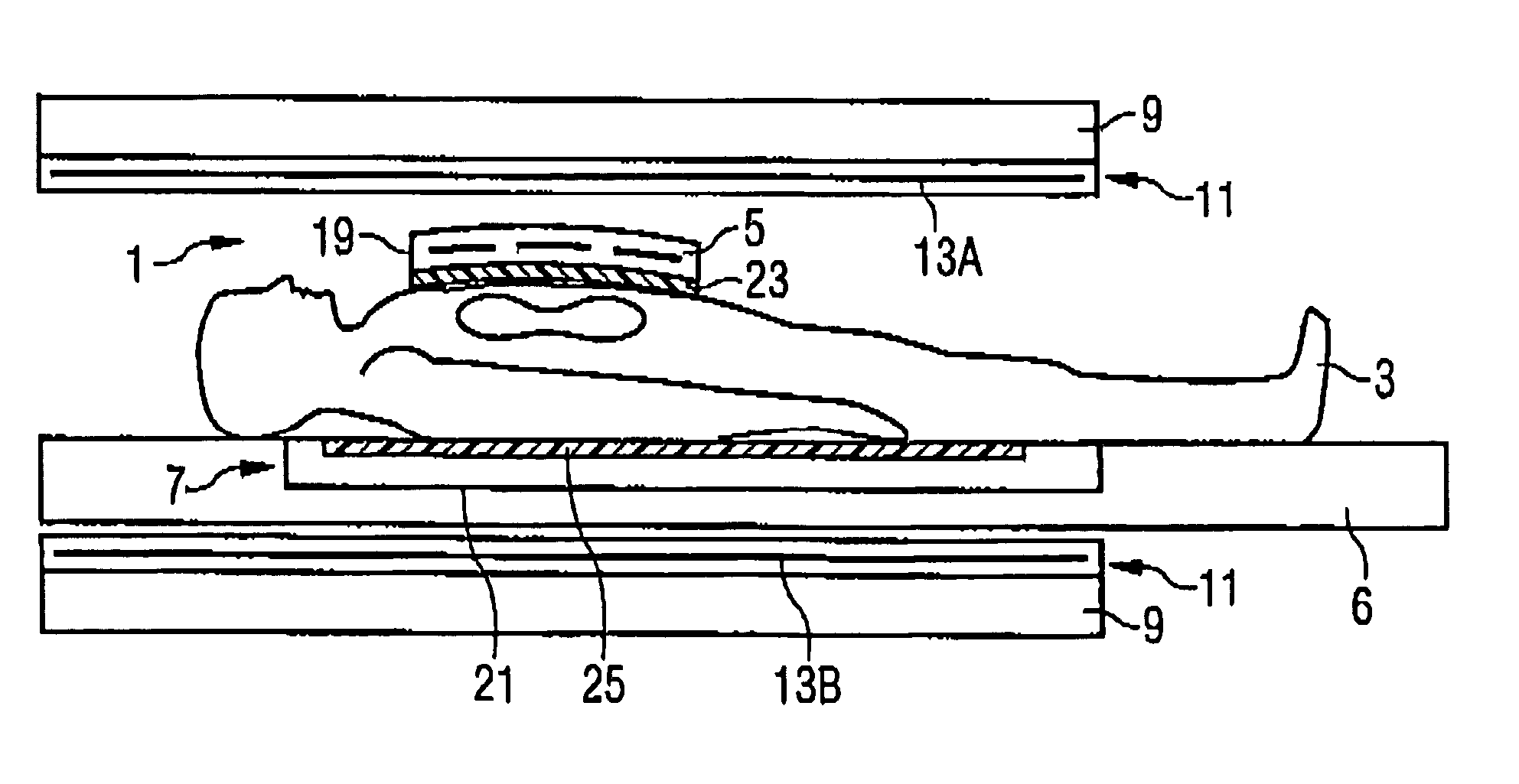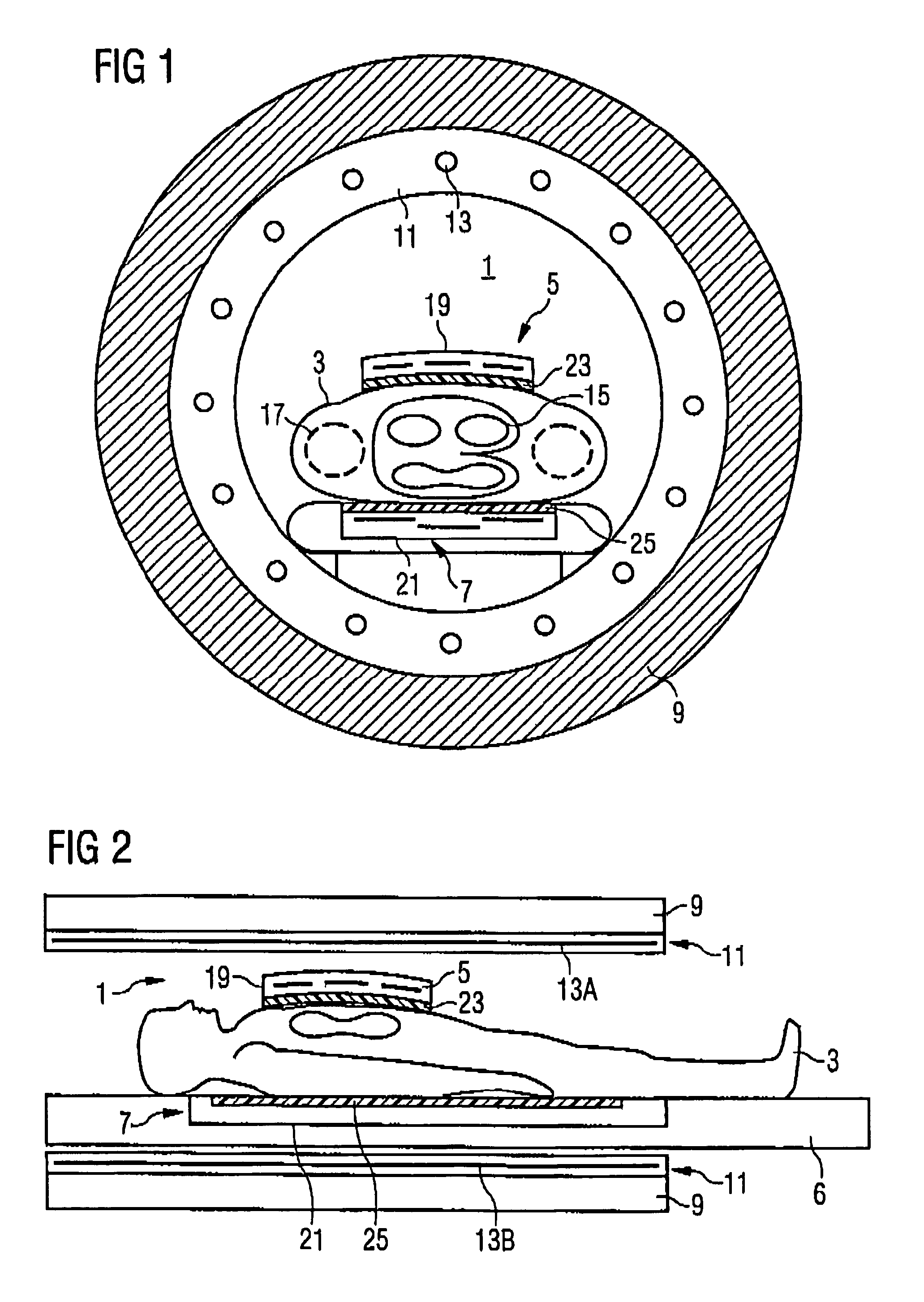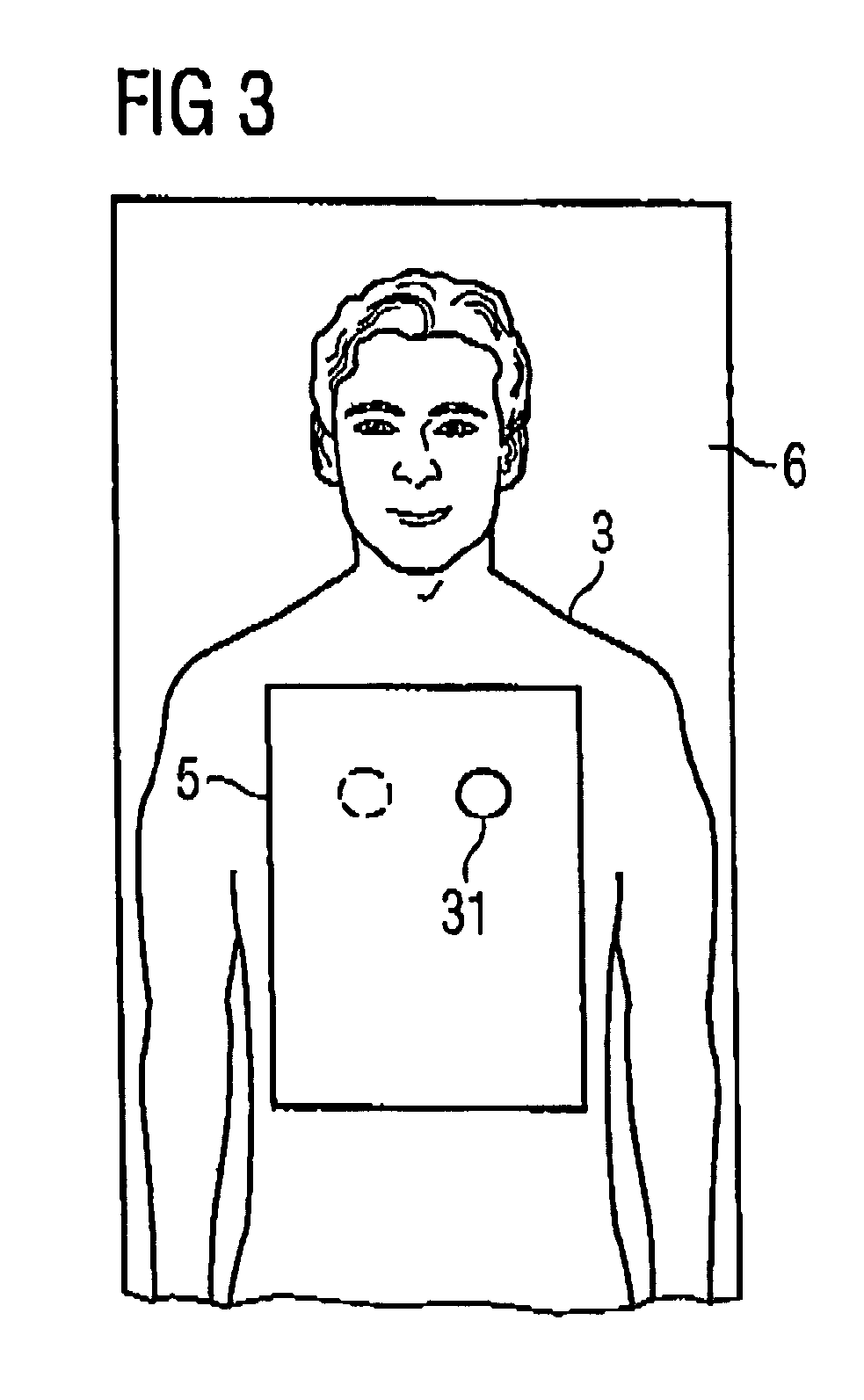Local coil unit for a magnetic resonance apparatus
a magnet resonance and local coil technology, applied in the field of local coil units for magnet resonance apparatuses, can solve the problems of inhomogeneous b1 field distribution, false measurement, and undesired dependence of image contrast, and achieve the effects of convenient laying of the device on the patient, convenient handling, and weight saving
- Summary
- Abstract
- Description
- Claims
- Application Information
AI Technical Summary
Benefits of technology
Problems solved by technology
Method used
Image
Examples
Embodiment Construction
[0029]FIG. 1 shows a cross-section through an examination area 1 of a magnetic resonance device in which a patient 3 is being examined with a body and a spinal column unit 5,7.
[0030]With the aid of the base field magnet 9 the base magnetic field in the examination area 1 is generated. This is overlaid with the aid of a radio-frequency field generated by a whole-body antenna 11 within the body of the patient 3 it is desired to create as homogeneous a B1 field as possible. Residual inhomogeneities of the B1 field are sketched schematically in the body of patient 3. The solid lines 15 correspond to areas with reduced B1 field strength, the dashed lines 17 schematically sketch areas with increased B1 field strength. The inhomogeneities are essentially generated by inductively-created eddy currents in the patient 3. These flow in the heart area and in the area of the back musculature.
[0031]Magnetic resonance signals of the torso the of the patient 3 are received with local coil units, fo...
PUM
 Login to View More
Login to View More Abstract
Description
Claims
Application Information
 Login to View More
Login to View More - R&D
- Intellectual Property
- Life Sciences
- Materials
- Tech Scout
- Unparalleled Data Quality
- Higher Quality Content
- 60% Fewer Hallucinations
Browse by: Latest US Patents, China's latest patents, Technical Efficacy Thesaurus, Application Domain, Technology Topic, Popular Technical Reports.
© 2025 PatSnap. All rights reserved.Legal|Privacy policy|Modern Slavery Act Transparency Statement|Sitemap|About US| Contact US: help@patsnap.com



